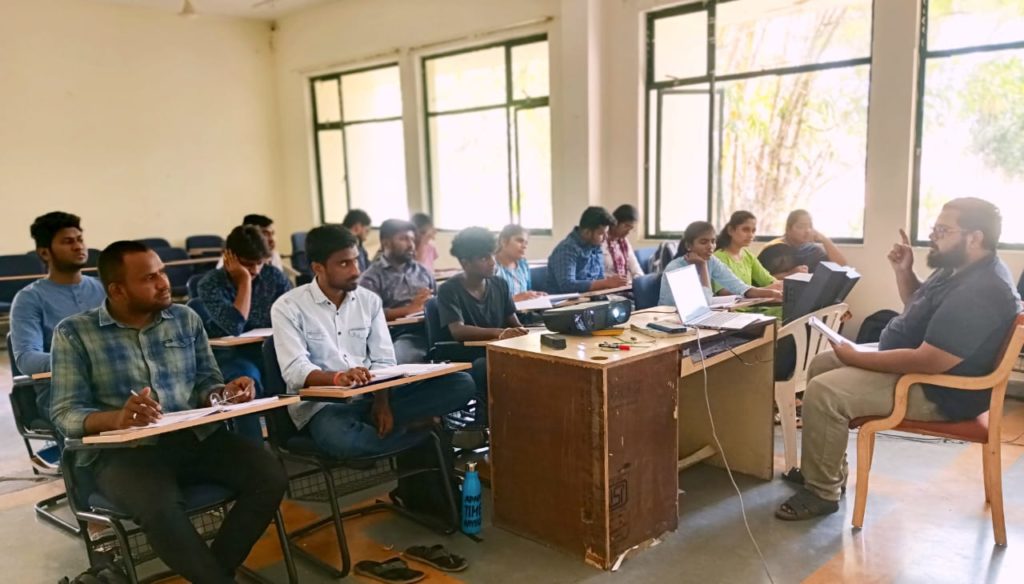
The Significance and Components of the German language for working in Germany
A common question is what qualifications are needed to work in a foreign country. In nations where the national language is widely spoken, this question takes on greater significance as a survival need.
German is one of the ten most frequently spoken languages in the world and is a prominent language of trade and commerce in Central and Eastern Europe.
Being able to communicate effectively in any foreign language is highly valued in today’s society. It is equivalent to possessing a legitimate academic degree certification. For this reason, many individuals who want to study overseas begin learning the foundational languages of other countries. Many people enroll in a German language course in order to feel more at ease in their native country, regardless of whether they want to study or work there.
It is also well recognised that while many work positions run in English, their growth is limited, so why limit your future by not learning a new skill and securing a variety of jobs with the German language
What are the advantages of learning German to work in Germany?
The benefits of studying a foreign vernacular, like German, are numerous. Probably the most important thing you can do to prepare for your life in Germany is to learn German. For this, you can take classes for the German language. This can help you settle in even faster and facilitate the process of meeting new friends. Being able to function comfortably in daily work situations with a strong B2 level of German is preferred by the majority of companies in Germany.
In certain situations, including the workplace or exams, you may need to provide documentation of your proficiency in German. Alongside, completing tests and getting endorsements will look excellent on your CV and expand your chances when applying for jobs, regardless of whether you need to prove your German language proficiency for your job. As a result, employers can notice right away that you are devoted and speak the language.
Therefore, in order to secure decent employment in Germany for international students, fluency in the language is highly advantageous. So why not enrol in a German-speaking course?
What German Language Proficiency is Needed to Work in Germany?
The benefits increase with your level of language proficiency. Additionally, new job options arise, increasing your chances of mingling and being friendly with the new country. Though varied levels of skill in the language have varied benefits, Germany requires at least B1 or B2 fluency.
Levels A1 and A2: These levels provide you with a basic understanding of the German language. We strongly advise you to enrol in the A1 course, assuming you have no prior knowledge.
Levels B1 and B2: This is where you will unquestionably learn German. Your language skills will improve, and after completing level B2, you’ll truly desire to communicate freely and in a different way in both daily life and the workplace.
Levels C1 and C2: These are the highest-quality German levels. By the time these courses end, you will have nearly as much command of the language as people who have spoken it their entire lives, such as close local skills.
The Common European Framework of Reference for Languages (CEFR) is sometimes used to evaluate your German proficiency. The six levels of language competency defined by the CEFR indicate what may be expressed and understood at each level by language learners.
To begin working, you must meet the requirements at least at level B2, which is regarded as an upper intermediate and good-to-go level. If you pass B2 level German language exams, it opens up a variety of opportunities in Germany for international students, including:

Where and how to begin?
Knowing the fundamentals today, it’s best to get to work on it right away. Confused about where to start studying German? This is how you can get going:
Attend German Language Classes: Local language schools, community colleges, universities, and online learning environments all provide German language instruction.
If you’d like to take German language classes offline, you can sign up for Indietalents’ offline classes, which are offered in Hyderabad. Alternatively, you can choose to learn German language online from anywhere in the world by enrolling in our online classes.
Utilise resources: You can check out various podcasts and books using German as their primary language of communication.
Acclimatise to the accent: Take in the straightforward language of German children’s television and news programmes.
We understand that it’s easier said than done. As a result, Indietalent has introduced a comprehensive German language learning course where you are free to ask questions and pick up the language. With a comprehensive 360-degree support system, we are here to help you at every step while you pursue your German language learning from us, the best German language institute in India.
How long does it take to learn B2-level German?
Gaining a decent grade and reaching the B2 level in German can take 7–9 months, but with enough perseverance, it is possible to finish in 6 months. The time it takes is determined by how hard you study and how much time you spend each day speaking, reading, and writing. Some are skilled at picking up languages and memorising information; they completed the course in three to four months.
What comes next?
To prove your proficiency in German, you must pass the Goethe certificate, also called the Goethe-Zertifikat. This globally recognised document is a testament to your language skills. The Goethe-Institut, a nonprofit organisation dedicated to advancing German language and culture globally, bestows this honour.
The Goethe Certificate is offered at several levels, from A1 (beginning) to C2 (advanced). The Common European Framework of Reference for Languages (CEFR), a standardised framework for characterising language competency, correlates to each level.
Employers, academic institutions, and other organisations frequently accept the Goethe Certificate as evidence of a candidate’s language proficiency. It can be helpful for professionals who work in international settings and must speak German, as well as for students who wish to study in Germany or other German-speaking nations.
A person must pass a standardised exam measuring their German speaking, reading, writing, and listening comprehension in order to receive a Goethe Certificate. The Goethe-Institut and other recognised organisations all over the world administer the tests. The tests are normally given multiple times a year, and in order to sit for them, candidates must register and pay a fee.
However, another option is a TELC Certificate, which stands for The European Language Certificate and represents a range of language certifications available across Europe. TELC tests are essential for assessing language proficiency at different levels. These globally recognised tests provide a standardised assessment of language proficiency, facilitating efficient international communication. They include Russian, Portuguese, French, English, and Turkish in addition to German.

Another option is to take the globally recognised ÖSD exam, which is developed by a non-profit organisation for those who speak German as a second or foreign language. “ÖSD” refers to “Österreichisches Sprachdiplom Deutsch”. ÖSD certifications provide international recognition and certified confirmation of German language proficiency.
All things considered, a German language proficiency certificate is a useful qualification for everyone wishing to prove their fluency in German and create doors for employment, study, and travel in German-speaking nations.
Conclusion
Thus, for an immigrant hoping to work in Germany, this is everything that the German language revolves around. We have covered comprehensively the various levels of German language competency as well as how to study for the test, succeed in it, and accomplish your ambition of working abroad in Germany. Remember that mastering level B2 is the most important requirement in order to accept excellent job possibilities in Germany.
We function in both offline and online learning environments with a dedicated support team and regular batches running each month. Our German language programmes are available in Hyderabad for those who like to learn in a traditional classroom. Alternatively, if you prefer to learn from home at your convenience, we also offer online classes. You can easily learn German up to level B2 in either option.
If you’re worried and unsure about how to relocate internationally to Germany and where to start, click this link to get in touch with the specialists at Indietalent, who have helped thousands of people migrate internationally and advance their careers through advice and support







